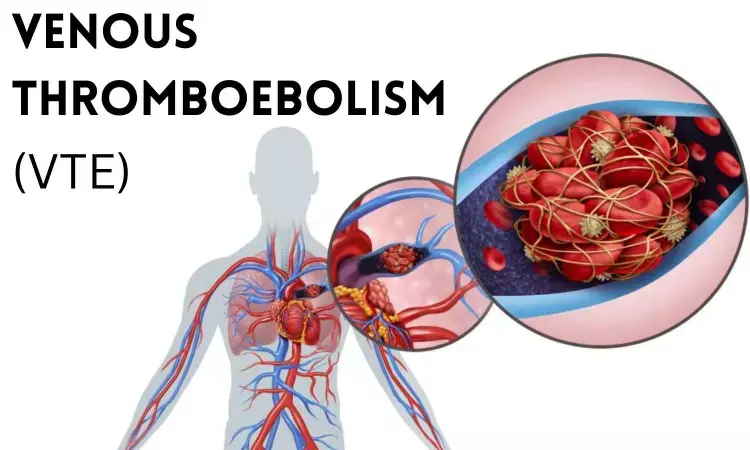- Home
- Medical news & Guidelines
- Anesthesiology
- Cardiology and CTVS
- Critical Care
- Dentistry
- Dermatology
- Diabetes and Endocrinology
- ENT
- Gastroenterology
- Medicine
- Nephrology
- Neurology
- Obstretics-Gynaecology
- Oncology
- Ophthalmology
- Orthopaedics
- Pediatrics-Neonatology
- Psychiatry
- Pulmonology
- Radiology
- Surgery
- Urology
- Laboratory Medicine
- Diet
- Nursing
- Paramedical
- Physiotherapy
- Health news
- Fact Check
- Bone Health Fact Check
- Brain Health Fact Check
- Cancer Related Fact Check
- Child Care Fact Check
- Dental and oral health fact check
- Diabetes and metabolic health fact check
- Diet and Nutrition Fact Check
- Eye and ENT Care Fact Check
- Fitness fact check
- Gut health fact check
- Heart health fact check
- Kidney health fact check
- Medical education fact check
- Men's health fact check
- Respiratory fact check
- Skin and hair care fact check
- Vaccine and Immunization fact check
- Women's health fact check
- AYUSH
- State News
- Andaman and Nicobar Islands
- Andhra Pradesh
- Arunachal Pradesh
- Assam
- Bihar
- Chandigarh
- Chattisgarh
- Dadra and Nagar Haveli
- Daman and Diu
- Delhi
- Goa
- Gujarat
- Haryana
- Himachal Pradesh
- Jammu & Kashmir
- Jharkhand
- Karnataka
- Kerala
- Ladakh
- Lakshadweep
- Madhya Pradesh
- Maharashtra
- Manipur
- Meghalaya
- Mizoram
- Nagaland
- Odisha
- Puducherry
- Punjab
- Rajasthan
- Sikkim
- Tamil Nadu
- Telangana
- Tripura
- Uttar Pradesh
- Uttrakhand
- West Bengal
- Medical Education
- Industry
Indefinite anticoagulation fails to improve survival among patients with first-provoked VTE

New research revealed that clinicians should make a shared decision making based on the patient's preferences for indefinite anticoagulation as even though it prevented recurrent venous thromboembolic events after initial anticoagulation discontinuing but was not cost-effective and did not improve Quality-adjusted life-years in patients. The study results were published in the journal 'Annals of Internal Medicine.'
Venous thromboembolism is the second most common and major cardiovascular disorder and a step behind myocardial infarction and stroke. It poses a major threat to the public health. It includes pulmonary embolism and deep vein thrombosis. It causes major hospitalization and affects the quality-adjusted life years. VTE is preventable and anticoagulants are the cornerstone of treatment. Guidelines suggest indefinite anticoagulation for a first unprovoked venous thromboembolism (VTE). Hence researchers conducted a study to assess the benefit–harm tradeoffs of indefinite anticoagulation in patients with a first unprovoked VTE.
Using the Markov modeling approach, systematic reviews and meta-analyses for the long-term risks and case-fatality rates of recurrent VTE and major bleeding were assessed. Published literature that discussed the costs, quality of life, and other clinical events were also searched. The target population included patients with a first unprovoked VTE who have completed 3 to 6 months of initial anticoagulant treatment and intervened with indefinite anticoagulation with direct oral anticoagulants were followed for their lifetime. The main outcomes of measurements were recurrent VTE events, major bleeding events, costs in 2022 Canadian dollars (CAD), and quality-adjusted life-years (QALYs).
Results:
- Compared with discontinuing anticoagulation after initial treatment in a hypothetical cohort of 1000 patients aged 55 years, indefinite anticoagulation prevented 368 recurrent VTE events, which included 14 fatal pulmonary emboli but induced an additional 114 major bleeding events, which included 30 intracranial hemorrhages and 11 deaths from bleeding.
- Indefinite anticoagulation cost CAD $16 014 more per person and did not increase QALYs (−0.075 per person).
- The case-fatality rate of major bleeding and the annual risk for major bleeding during extended anticoagulation had the greatest impact on the model's output.
Take-home points:
- The benefits and risks of indefinite anticoagulation for patients with first-provoked venous thromboembolism (VTE) were assessed in this model-based cost-effectiveness analysis. Drawing on data from the previously published literature, the authors modeled outcomes for a theoretical cohort of 1000 patients aged 55 years. Indefinite anticoagulation avoided 368 recurrent VTE events but induced 114 major bleeding events when compared with anticoagulation cessation after 3 to 6 months. Indefinite anticoagulation was associated with increased healthcare costs (CAD $16,014/person) and was not associated with improved quality-adjusted life-years.
- The study authors conclude that indefinite anticoagulation is unlikely to be cost-effective and does not offer a substantial mortality benefit, given the higher mortality associated with significant bleeding events. These results could inform management strategies and shared decision–making conversations.
Further reading: Indefinite Anticoagulant Therapy for First Unprovoked Venous Thromboembolism. A Cost-Effectiveness Study. https://doi.org/10.7326/M22-3559
BDS, MDS
Dr.Niharika Harsha B (BDS,MDS) completed her BDS from Govt Dental College, Hyderabad and MDS from Dr.NTR University of health sciences(Now Kaloji Rao University). She has 4 years of private dental practice and worked for 2 years as Consultant Oral Radiologist at a Dental Imaging Centre in Hyderabad. She worked as Research Assistant and scientific writer in the development of Oral Anti cancer screening device with her seniors. She has a deep intriguing wish in writing highly engaging, captivating and informative medical content for a wider audience. She can be contacted at editorial@medicaldialogues.in.
Dr Kamal Kant Kohli-MBBS, DTCD- a chest specialist with more than 30 years of practice and a flair for writing clinical articles, Dr Kamal Kant Kohli joined Medical Dialogues as a Chief Editor of Medical News. Besides writing articles, as an editor, he proofreads and verifies all the medical content published on Medical Dialogues including those coming from journals, studies,medical conferences,guidelines etc. Email: drkohli@medicaldialogues.in. Contact no. 011-43720751



